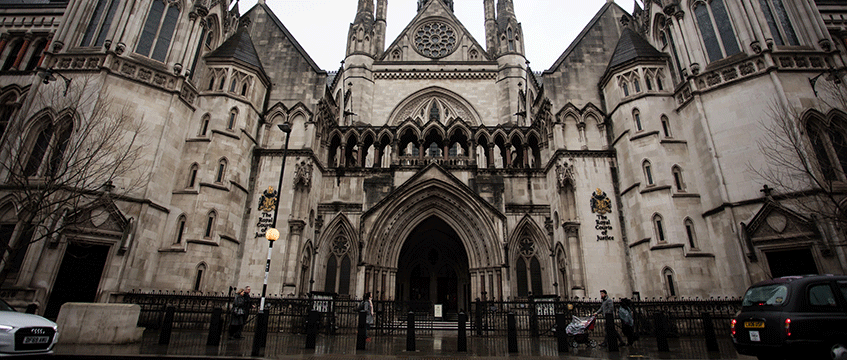High Court judge revokes Regis CVA
In a rare move, High Court judge Mr Justice Zacaroli – who last week upheld New Look’s company voluntary arrangement – today (17 May) ruled that the CVA in respect of hairdressing chain Regis UK Ltd should be revoked, even though it was terminated when the company went into administration in 2019.
The limited basis on which the order was made is unlikely to offer much comfort for landlords in the wake of the more comprehensive New Look decision.
However, Melanie Leech, chief executive at the British Property Federation, said the decision would be “very welcome news for property owners up and down the country”.
In a rare move, High Court judge Mr Justice Zacaroli – who last week upheld New Look’s company voluntary arrangement – today (17 May) ruled that the CVA in respect of hairdressing chain Regis UK Ltd should be revoked, even though it was terminated when the company went into administration in 2019.
The limited basis on which the order was made is unlikely to offer much comfort for landlords in the wake of the more comprehensive New Look decision.
However, Melanie Leech, chief executive at the British Property Federation, said the decision would be “very welcome news for property owners up and down the country”.
She added: “Mr Justice Zacaroli is sending a very clear message to the market – CVAs cannot be about hurting property owners to simply increase value for your shareholders, discounts on property owners’ claims must be reasonable and justified, and insolvency practitioners have a duty to ensure CVA proposals are fair.
“This abuse, where a CVA is not just about rescuing a business from insolvency, but about transferring value from property owners to a business’s shareholders, must stop – today’s ruling means businesses and their insolvency practitioners cannot continue to prejudice property owners’ interests. A fairer business rescue culture will be vital for the millions of pensioners and savers invested in UK commercial property.”
The judge noted that the applicant landlords in the Regis action had been “open in saying that one of the reasons for pursuing the challenge to the CVA, even after it had terminated, was to obtain a ruling from the court on issues that had been raised, or were likely to be raised, in the context of other CVAs of retail companies”, but added: “Even if that had once been a justification for pursuing these proceedings, it had fallen away by the time of the trial, in light of the challenge to the New Look CVA.”
Regis, which traded as a national chain of hairdressers under the Regis and Supercuts brands, had entered into the CVA with its creditors in 2018 which involved rent reductions for many landlords. Although the CVA was discharged when the company entered administration in October 2019, a group of the chain’s landlords nevertheless pursued their legal action against the agreement’s nominees, proceedings which were heard in March alongside the New Look CVA challenge.
The applicant landlords had claimed that numerous aspects of the CVA gave rise to material irregularities or unfair prejudice, but the judge found that the CVA was only in one respect “unfairly prejudicial”. This involved a finding that the nominees – the joint supervisors of the CVA – fell below the required standards in recommending that the CVA proposal be put to a meeting of creditors in circumstances where the inclusion of International Beauty Ltd as a critical creditor was unfairly prejudicial to the applicants.
He exercised his discretion to order revocation of the CVA but declined to order the nominees to repay their fees.
The judge rejected an argument that there would be “no purpose” in revoking a CVA that had already terminated, saying: “I do not accept this. Depending on the terms of the CVA, it may well be that parts of it survive termination. That was indeed the position in this case in that, prior to the concession made by the administrators of the company, the provision in the CVA which deemed the release of claims not to have happened in the event of termination did not apply to the compromised landlords. In any such case, there would be a clear purpose in revoking the CVA so as to bring it to an end completely.”
He added that, even though the only remaining possible utility in these proceedings is in relation to the costs of the applicants as against the company in administration – a large proportion of which had already been incurred by October 2019 – and that the prospects of recovery may be remote, counsel for the applicants, Peter Arden QC, had nevertheless contended that if, if there were grounds for revoking the CVA, the court should do so, “if only because it is simply ‘the right thing to do’.”
The judge concluded: “In my judgment, as between the applicants and the company, having concluded that the CVA was unfairly prejudicial to the applicants, the proper course is to make an order revoking the CVA.
Doug Robertson, an insolvency and restructuring partner at Irwin Mitchell, said: “The first instance decisions show the judiciary as largely supportive of the use of CVAs and restructuring plans as a restructuring tool, with the judiciary playing a relatively light touch role on restricting their use. Fraudulent conduct, however will not be tolerated. These are powerful restructuring tools and, particularly in the case of a CVA where court oversight only comes into play at the stage of any challenge, the checks and balances must be sufficiently robust to catch and deter misfeasance.”
To send feedback, e-mail jess.harrold@eg.co.uk or tweet @EGPropertyNews











